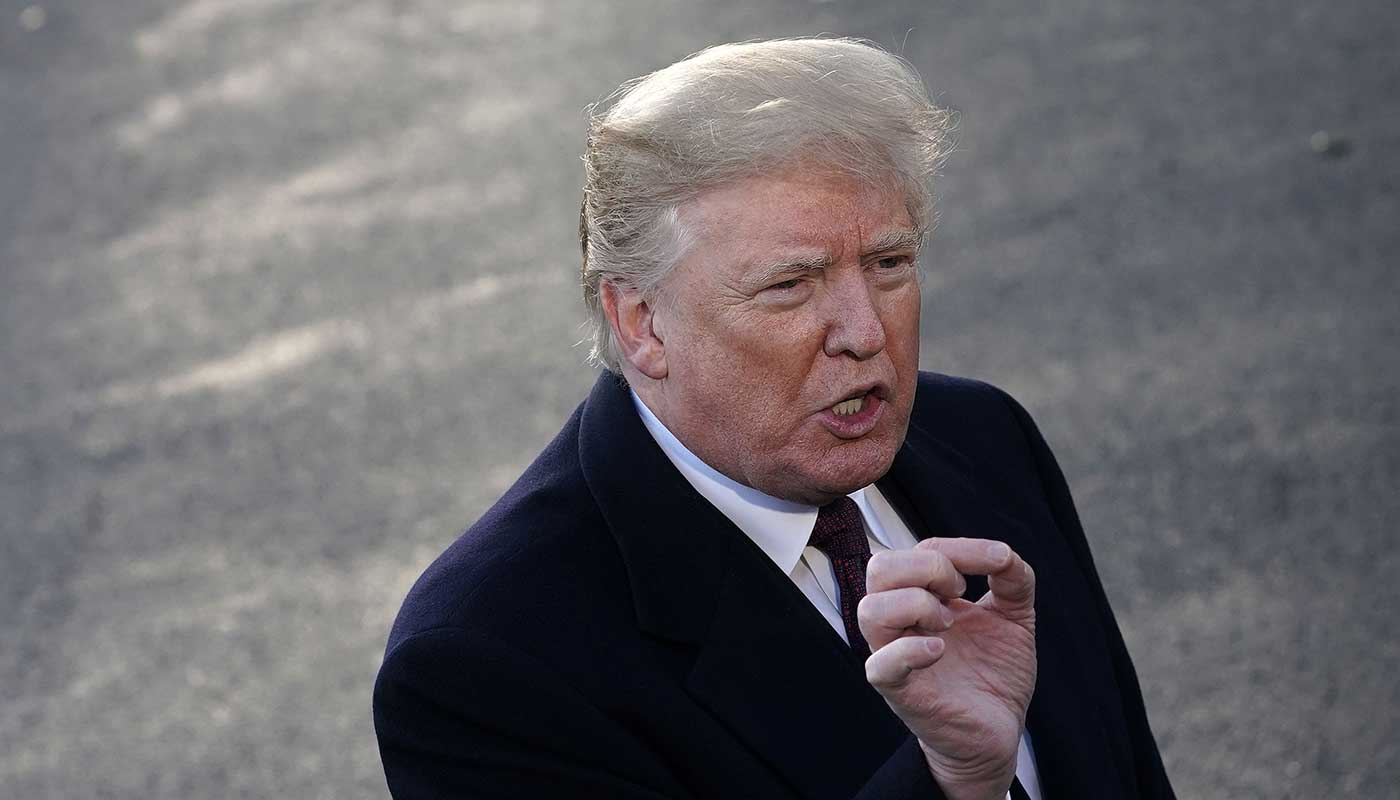Donald Trump gave ‘initial approval’ for Iran strikes after drone attack
US president had ‘planes in the air and ships in position’ before pulling back

A free daily email with the biggest news stories of the day – and the best features from TheWeek.com
You are now subscribed
Your newsletter sign-up was successful
Donald Trump gave initial approval for the military to launch strikes on Iran in retaliation for Tehran shooting down a US drone, reports the New York Times.
An unnamed official says planes were in the air and ships were in position, ready to attack Iranian targets including radar and missile batteries. However, no missiles had been fired when word came to stand down.
The planned retaliation was intended as a response to the shooting down of an unmanned, $130m surveillance drone, which was struck yesterday morning by an Iranian surface-to-air missile.
The Week
Escape your echo chamber. Get the facts behind the news, plus analysis from multiple perspectives.

Sign up for The Week's Free Newsletters
From our morning news briefing to a weekly Good News Newsletter, get the best of The Week delivered directly to your inbox.
From our morning news briefing to a weekly Good News Newsletter, get the best of The Week delivered directly to your inbox.
The strike was set to take place just before dawn today in Iran to minimise the risk to the Iranian military and civilians.
The New York Times says “it was not clear whether Mr Trump simply changed his mind on the strikes or whether the administration altered course because of logistics or strategy”. Looking ahead, The Guardian said it was also unclear “if strikes would go ahead at a later date”.
Describing the mood in America's corridors of power, the New York Times says that “the possibility of a retaliatory strike hung over Washington for much of the day” and it is thought that Trump’s national security advisers were divided over whether to respond militarily to the downing of the drone.
Among those pushing for such a response were Secretary of State Mike Pompeo, national security adviser John Bolton, and Gina Haspel, the CIA director.
A free daily email with the biggest news stories of the day – and the best features from TheWeek.com
However, top Pentagon officials had warned Trump that such an action could result in a spiralling escalation with grave consequences for American forces in the region.
Trump said yesterday that Iran “made a very big mistake” when it shot down a US military surveillance drone over the Strait of Hormuz. However, he added that it could have been the result of human error, saying: “I find it hard to believe it was intentional.”
He continued: “This drone was in international waters, clearly. We have it all documented. It’s documented scientifically, not just words.”
Asked what would come next, Trump had said, “Let’s see what happens.” The Washington Post points out that Trump “appeared to tamp down” the likelihood of an immediate military response when he highlighted the fact that the Global Hawk was unmanned.
“We had nobody in the drone,” said the US president. “It would have made a big difference, let me tell you.”
Tensions between the two countries have soared recently after the US blamed Iran for attacks on oil tankers and Iran announced it will soon exceed international agreed limits on its nuclear programme.